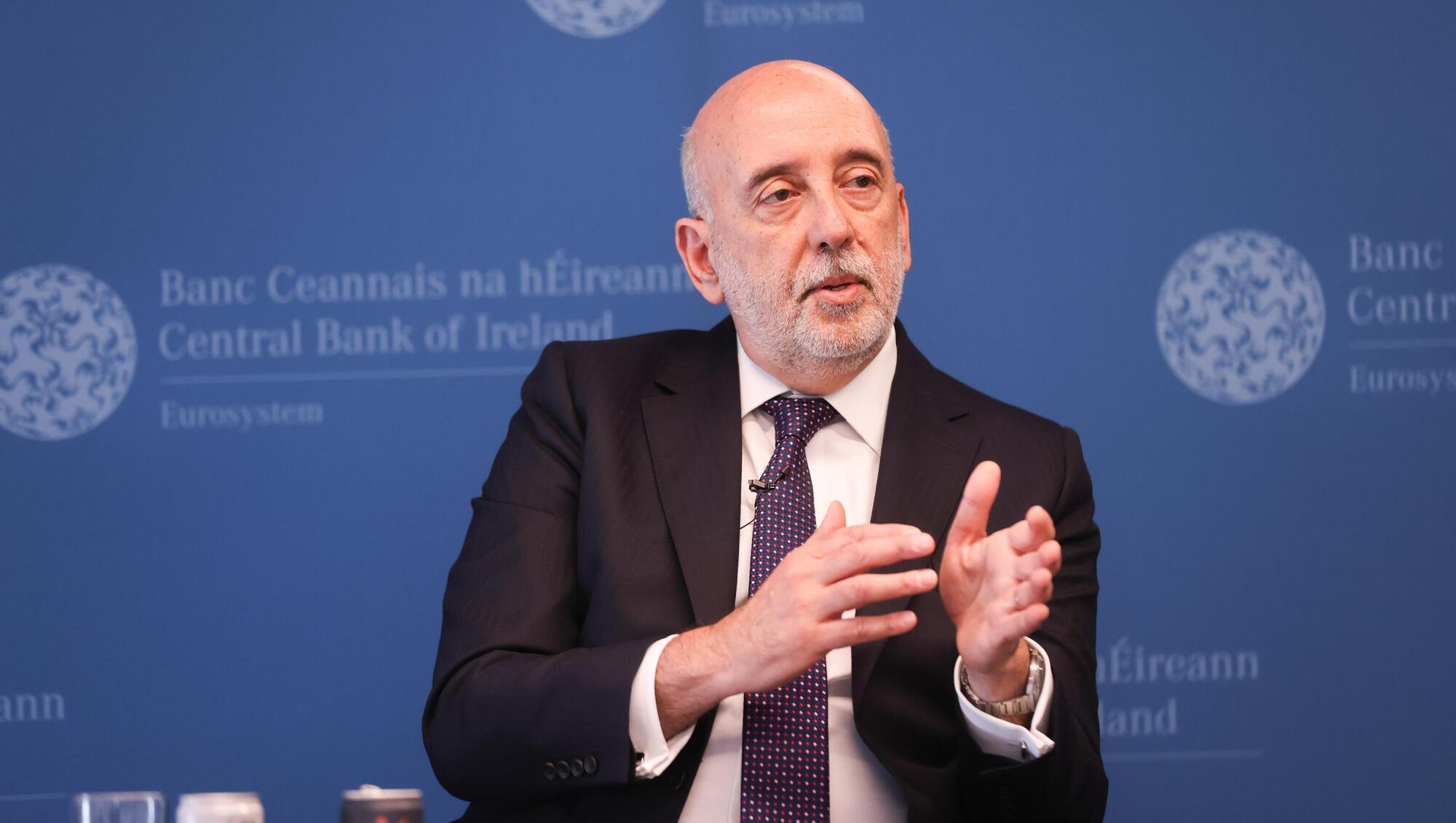Business
Central Bank Governor Warns US-EU Trade Deal May Hinder Growth

The governor of the Central Bank of Ireland, Gabriel Makhlouf, stated that the recent agreement between the United States and the European Union (EU) to impose 15% tariffs on EU goods will likely “dampen economic growth.” This development, while concerning, may be partially mitigated by a reduction in uncertainty regarding trade relations, which has been a significant factor in the economic landscape since the beginning of the year.
On Sunday, the EU and the US announced the framework of a trade deal that includes these tariffs on imports from the EU. In a blog post, Makhlouf noted that the details of the agreement remain sparse, making it difficult to conduct a thorough analysis. He indicated that companies in the US may respond to these tariffs by either absorbing the costs, thereby reducing their profits, or passing the additional expenses onto consumers.
Makhlouf elaborated, stating, “Overall, compared to six months ago, US tariffs of 15% on EU goods will dampen economic growth, although it will be partially offset by reducing uncertainty and the likelihood of a more damaging trade war that has dominated the economic environment since the start of the year.” He emphasized the unpredictability of US trade policy, which has complicated economic forecasting.
As the Central Bank of Ireland continues to navigate these challenges, last week’s decision by the European Central Bank (ECB) Governing Council to maintain current interest rates reflects a cautious approach. Makhlouf expressed confidence that inflation targets are on track to stabilize at the ECB’s objective of 2% in the medium term.
In addressing the inflationary trends within Ireland, he remarked that while the economy and public finances are entering a phase of increased uncertainty from a robust position, there are underlying vulnerabilities that require careful management.
The recent publication of the National Development Plan and the Summer Economic Statement highlighted the need for fiscal policy to balance rising public investment with current spending demands aimed at maintaining or enhancing public services.
When discussing the ECB’s interest rate stance, Makhlouf noted, “We have reached a point in the easing cycle where we can wait and see whether the data and evidence indicates the need for a change in our monetary policy stance.” He underscored that no commitment has been made to a specific rate path, emphasizing that the bank will continue to consider new information as it becomes available.
The next ECB meeting is scheduled for September 2023, where policymakers will reassess the evolving economic landscape and its implications for monetary policy.
-

 Top Stories3 months ago
Top Stories3 months agoTributes Surge for 9-Year-Old Leon Briody After Cancer Battle
-

 Entertainment4 months ago
Entertainment4 months agoAimee Osbourne Joins Family for Emotional Tribute to Ozzy
-

 Politics4 months ago
Politics4 months agoDanny Healy-Rae Considers Complaint After Altercation with Garda
-

 Top Stories4 months ago
Top Stories4 months agoIreland Enjoys Summer Heat as Hurricane Erin Approaches Atlantic
-

 World5 months ago
World5 months agoHawaii Commemorates 80 Years Since Hiroshima Bombing with Ceremony
-

 Top Stories3 months ago
Top Stories3 months agoNewcastle West Woman Patricia Foley Found Safe After Urgent Search
-

 Top Stories5 months ago
Top Stories5 months agoFianna Fáil TDs Urgently Consider Maire Geoghegan-Quinn for Presidency
-

 World5 months ago
World5 months agoCouple Convicted of Murdering Two-Year-Old Grandson in Wales
-

 World5 months ago
World5 months agoGaza Aid Distribution Tragedy: 20 Killed Amid Ongoing Violence
-

 World5 months ago
World5 months agoAristocrat Constance Marten and Partner Convicted of Infant Murder
-

 Top Stories4 months ago
Top Stories4 months agoClimbing Errigal: A Must-Do Summer Adventure in Donegal
-

 Top Stories4 months ago
Top Stories4 months agoHike Donegal’s Errigal Mountain NOW for Unforgettable Summer Views









